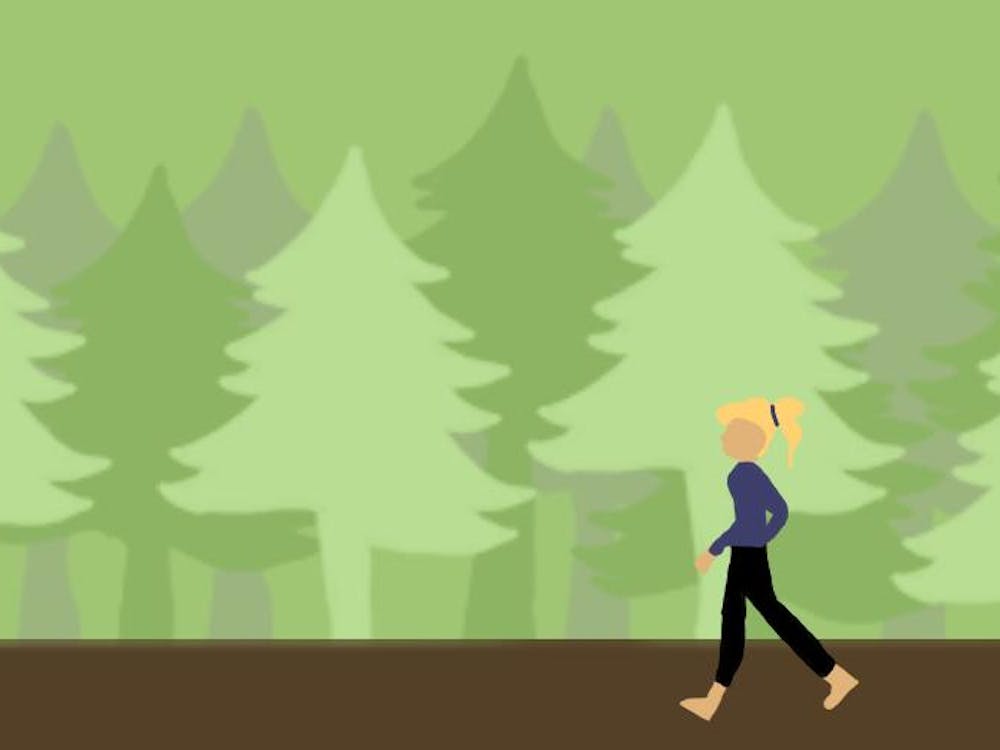The International Residential College is not only a dormitory and community, but a ticket into certain classes. IRC-specific classes allow students living in this residential college the opportunity to explore communities, both local and abroad.
IRC Director of Studies Marga Odahowski said one of the missions of all the residential colleges is to have academic class offerings. IRC Principal Brad Brown said the residential colleges, including the IRC, were designed by the Provost Office to be their own small communities.
“The IRC is for international and American students who want to live in a community where they can have a global perspective,” Odahowski said. “It is for students who want to broaden their perspective, not only intellectually, but also in an experiential way.”
One way the IRC tries to help residents to broaden their horizons is through providing classes like the current fall semester course, INST 276, “Find Your Place in the World.” Brown said the class encourages students to interact more with the Charlottesville area and the local community. The class has a strong emphasis on helping the local food movement and on ways to support sustainable methods of production; the course includes field trips to local farms and nature walks through various areas to see the local community.
Odahowski said the class provides students with a new outlook on how to see themselves and their place in the world.
“The class is about our interconnectedness and how the choices we make affect each other as well as the world,” she said. “One of the goals of the IRC is to have programs that promote a global living-learning experience.”
She noted that this goal ties into the local food movement. “Local food is healthy for us, but it also affects us in a bigger societal way,” she said. Odahowski noted that buying local food is part of supporting local farmers and getting to know one’s neighbors.
Zhenhua Lai, second-year College student currently taking “Find Your Place in the World,” said students in the class learn about being global citizens by studying issues that are important for people to know as citizens of the world. She noted that taking the class balances one’s schedule because while students may take classes for the grade or credit, the IRC classes are to help supplement your life.
“The class really puts things into perspective,” she said. “Because this class is on Friday, it’s right at the end of the week after being stressed out by grades and papers, so it’s a great way to kick back, relax and have a larger perspective on what’s going on in the world,” Lai said.
Besides the ongoing course, the IRC also offers classes in the spring. These involve an application process, however, and include fewer students, usually ranging from five to six. Students in the IRC’s spring classes travel to another country during Spring Break in addition to attending two-hour classes.
Brown said the classes involve the IRC’s theme of internationalism and additionally work to establish a sense of a local community in a foreign country.
“What’s unique about travel-learn classes are that we try to get to know some local people,” Odahowski said. “For example, if they’re staying in Paris, they’ll visit the same coffee shop every week to get to know the people. In Greece, we will stay with a family.”
Odahowski said the students tend to go to one city.
“We call that slow travel, where you stay in that one city and get to experience not only the culture, but to also get to know some local people,” Odahowski said.
This “go slow” movement is the IRC spring semester classes’ travel philosophy.
“The ‘go slow’ movement is about building community, recognizing what we have and slowing down to appreciate what is all around us,” Brown said. He noted that it does not cost a lot but significantly adds to a traveler’s happiness.
“We’re interpreting the ‘go slow’ movement as a reaction to leading a more thoughtful life and slowing down and having good times with friends,” Brown said. “You don’t have to be in a frenetic pace all the time.”
Getting to know a local community abroad through slow travel is an example of the non-traditional learning experiences present in both fall and spring IRC classes.
“The students are a diverse group ... who are really open to experiential learning and into trying something different,” Odahowski said. “It’s quite different from a class where we’re lecturing. It’s more hands-on and experiential.”
These classes also offer IRC residents an opportunity to get acquainted with other students in the IRC and become more of a part of its community. “We really encourage first-year students to sign up for these classes as a way to get them more involved and to meet other students from the IRC,” Odahowski said.
Despite encouragement, not many IRC residents participate in these classes. “We have fewer students than the classes should have,” Brown said. “The class is sort of unattractive because it’s on Friday afternoon and people think they should keep it open. But it’s a good way to wind down and it’s a really enjoyable way to end the week.”






